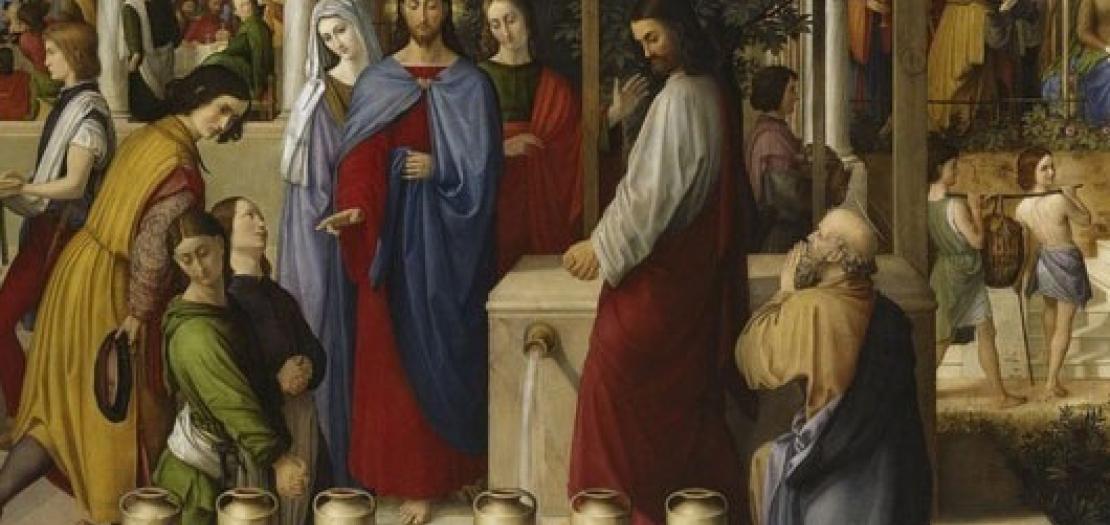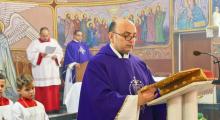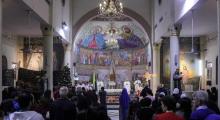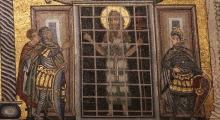Issued by the Catholic Center for Studies and Media - Jordan. Editor-in-chief Fr. Rif'at Bader - موقع أبونا abouna.org

Following is the text of the meditation by Latin Patriarch of Jerusalem His Beatitude Pierbattista Pizzaballa for the second Sunday of ordinary time, Year C, January 16, 2022:
(John 2:1-11)
John the Evangelist is very attentive to re-examine the experience of Jesus starting from the Book of Genesis.
Like Genesis, John begins his account with the expression “in the beginning’; and as Genesis, he picks up this principle in the narrative of a week, clearly marked day by day. It’s as to say that a new creation is underway: as God created the world and man in six days – after which, on the seventh day, he rested – so Jesus now recreates man and reality. He is reviving the entire creation and brings it back to its original beauty, bringing it back to its true principle, that is, to the Father.
The passage that we have heard today (Jn 2:1-11) begins precisely with an earthly note: “On the third day, there was a wedding feast…” (Jn 2:1). John recounted the first three days Jesus spent in Galilee, where the first group of disciples around Him was created (1Jn 1:19-51). From there, He attended this wedding feast together with them.
We need to pause a while on these annotations: it is the sixth day, or rather than of the creation of man; but John likes to emphasize that it is also the third day since His arrival in Galilee, and this three refers to the great day of the covenant which Chapter 19 of the Book of Exodus reports (Ex 19:1; 19:16): on the third day God reveals Himself in a great theophany to the people, and gives Israel ten words (ten commandments) that will be the basis of their relationship, of their covenant.
What does the evangelist John mean by making explicit these references in the event of the Wedding of Cana? What new creation is underway, what glory (Jn 2:11) does Jesus reveal to his disciples?
In reality, the questioning is obligatory because nothing sensational seems to occur at Cana. Jesus is at a wedding feast, and wine is lacking (John 2:3): it’s certainly a problem, but one cannot say that it is a dramatic event, a question of life or death.
Instead, this miracle is so crucial that John emphasizes that with it Jesus initiates all His other signs, that with it He manifests His glory and thanks to it, His disciples believe in Him (John 2:11).
At Cana, nothing sensational happened except that Jesus deems an ordinary event of life so important as to make His first miracle. And He does it with an unheard-of waste because the pure joy of two spouses is worth the squandering, this surplus of love and gift. Here is the new man that Jesus creates: the man to whom God shows an excess of love, to whom God reveals this love, this word.
And the disciples are called to believe precisely in this, to see the glory of God that is revealed no longer as on Mount Sinai amid lightning and thunder, but in the regained joy of two newlyweds.
But what is the condition for this to happen? It seems to me that we can catch a glimpse of two in the text.
The first is already announced in Exodus 19, when, at that proclamation of the coming of the Lord, the people exclaimed: “All that the Lord has spoken, we will do!” (Ex 19:8). And so, in just the same way, it takes place at Cana, where Mary says to the servants: “Whatever He tells you, do it!” (John 2:5).
So that new believers can receive the good wine of the new covenant, the condition is that of “doing the Word”, or trusting completely the Word of the Lord, the Word that from the beginning tells His love for us, His desire to have a spousal, intimate, unique relationship with us.
Where will this loving obedience take us?
John the Evangelist says that this obedience takes us to Bethany. There, in fact, in Chapter 12, there is the episode speculating about this in the Wedding of Cana. It is the first day of the last week lived by Jesus (Jn 12:1), and there a woman tells of her love for Him, anointing Him with the oil of pure nard.
Marriages, then, begin at Cana but are completed in Bethany, where the spouse responds to the love of her Lord with the same style of abundance, of waste, of gift.
The second condition is also pointed out to us by the Mother of the Lord, it is that of asking Him, and no other, for wine (Jn 2:3). Mary, rightly, does not address her question to the wine steward, nor anyone else, because she knows well that no one can give the wine that is lacking.
There is in the heart of man a radical deficiency of life and love; and this new abundant life will spring forth for all from the spring that will open from the side of Christ, on the third day, where it will be clear that the glory of the Lord will be His love for us to the end.
+Pierbattista







